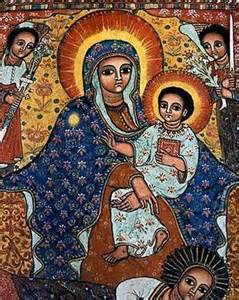“Looking for Jesus”
Luke 2:48-49 – December 27, 2015
Christmas time is here! Called by some the most wonderful time of the year. Certainly, one of the busiest times, what with parties, social gatherings, visiting at relatives’ homes, and so many extra things on people’s to-do lists. Yes, Christmas is now over, but we are still right smack in the middle of the winter holidays.
Our Gospel reading from Luke today is right smack in the middle of the holidays, too. Except—right in the middle of the Passover holiday, in the spring. An extra special holiday, to be sure! This is one of the rare glimpses we receive of the young Jesus, before the beginning of His ministry. When we do get a glimpse of Jesus as a growing boy, Dr. Luke doesn’t say much more than Jesus was “increasing in wisdom and in years, and in favor with God and people.”
Most people know the Christmas story from Luke chapters 1 and 2 so well. You remember. Angel visitations, miraculous statements, heavenly choruses. And, capped by the birth of the Messiah, the Lord, who will save His people from their sins. And then—we have this sort of addendum. This conclusion of Luke chapter 2.
As Scott Hoezee says in his commentary, “we have a story as mundane, as utterly earthly and simple as they come: lost child. Panicked parents. A frantic search. The whole thing started with angels and it ends . . . paging for a lost child on the P.A. system at Walmart?” [1]
Let’s take a closer look at our passage from Luke chapter 2. This reading is from “The Message,” the excellent version translated by Eugene Peterson, starting at verse 41.
41-45 Every year Jesus’ parents traveled to Jerusalem for the Feast of Passover. When He was twelve years old, they went up as they always did for the Feast. When it was over and they left for home, the child Jesus stayed behind in Jerusalem, but His parents didn’t know it. Thinking He was somewhere in the company of pilgrims, they journeyed for a whole day and then began looking for Jesus among relatives and neighbors. When they didn’t find Him, they went back to Jerusalem looking for Him.”
Now, from Jesus’s point of view, His decision to stay behind in Jerusalem for several days made sense to Him. He may have wanted to get to know God a little better. And, Nazareth was only a small town away up north, far away from the capital city of Jerusalem. I suspect Jesus wanted to talk further with the knowledgeable rabbis and teachers in the Temple, too.
But, from His parents’ point of view? How many of us have served as parents or adults, responsible for young children in our care? Did any of us have a child turn up lost? What must Mary and Joseph have been feeling, during that time when they did not know where Jesus was?
This reminds me of my oldest daughter, when she was just a preschooler. I was at a department store in Chicago with my two children (at that time), my older daughter just turned three, and my second daughter a baby strapped in a stroller. I was looking at clothing on the round metal racks that are common to many department stores. As I looked at clothing and tried to keep track of my young daughter at the same time, she got lost. I could not find her, and she was much too small to see me over the clothing racks.
It only took me about five minutes of searching to discover where she had gone, but that time was desperately anxious for me and traumatic for my daughter—I suspect those five minutes seemed to go on forever. She was lost. She did not know where she was, or where I was. She was all alone, far from her home and familiar things, until I found her and reassured her that everything was all right.
Back to our Gospel text, from Luke 2.
46-48 The next day they found Jesus in the Temple seated among the teachers, listening to them and asking questions. The teachers were all quite taken with Him, impressed with the sharpness of His answers. But His parents were not impressed; they were upset and hurt. His mother said, ‘Young man, why have you done this to us? Your father and I have been half out of our minds looking for you.’”
As one commentary notes, “Mary and Joseph spend 48 hours before finally tumbling to the idea that just maybe they should check the Temple. ‘I can’t imagine he’d be there’ they must have said to each other, ‘but we we’re running out of likely places, so let’s check.’ For his part Jesus is merely confused. The Temple was the first place they should have looked, as it turns out. Jesus was ‘home’ at the Temple. His parents don’t understand, however. They are too flush with a combination of intense relief and a little abiding post-traumatic stress to be able to suss it all out just then.” [2]
Let’s take a closer look at Jesus’s response: “49-50 He said, ‘Why were you looking for me? Didn’t you know that I had to be here, dealing with the things of my Father?’ But they had no idea what he was talking about.”
Many learned biblical scholars have tried to puzzle out this divine mystery. The mystery of Jesus being at once human and divine, at the same time. Here, we have just a glimpse of what this may have been like for Jesus.
The twelve year old boy Jesus probably knew Himself as human. Just as His parents and other family were, and the other children in his town. I wonder whether Jesus was starting to understand by this time that He was fully divine, as well? Yes, some verses in the Gospels tell us He did have an awareness of being divine. Of having Godly attributes. However, I wonder whether He was starting to realize the special call on His life, even now?
We don’t know for sure; we aren’t told. But, do you think this could be why Jesus wanted to stay in the Temple? To talk with those knowledgeable about the Scriptures?
To finish the reading: “51-52 So Jesus went back to Nazareth with them, and lived obediently with them. His mother held these things dearly, deep within herself. And Jesus matured, growing up in both body and spirit, blessed by both God and people.”
Dr. Luke is a faithful reporter. He tells us the facts, as they were related to him. But we don’t know the back story, Jesus’s feelings, His reasoning. Did the Temple have a draw on His life, even at the age of twelve? Did it feel more like home than his family home in Nazareth? Luke doesn’t say.
We know that Mary was a reflective woman. She treasured up these many wonderful things, and also the things that perplexed and troubled her. And, we can ponder these things in our hearts, hold these thoughts dearly, deep within ourselves, just like Mary did.
We know today, from the testimony of all the Scriptures, that Jesus is at the same time fully God and fully man. Yes, that is why He came down from heaven to be born of Mary. This is the good news brought to us by the angel chorus. The Eternal Second Person of the Trinity, Creator of the whole universe, God the Son, emptied Himself of all God-ness. Took on humanity, and was born as a helpless Baby. Good news of great joy for all the people.
Jesus. Messiah. He will save His people from their sins. Fully God, fully human, at the same time. Yes, it’s a mystery. It’s a miracle. For a closing hymn, we will sing “Once in Royal David’s City,” one of my favorite Christmas carols. Please notice the words of verses 2 and 3. Talking about Jesus being human. And then, verse 4 tells us of the future, when we will be with Jesus forever, in heaven.
We can all say alleluia, amen, to that!
(The congregational response to this sermon will be the Nicene Creed.)
Suggestion: visit me at my daily blog for 2015: matterofprayer: A Year of Everyday Prayers. and my other blog, A Year of Being Kind . Thanks!
[1] Sermon Starters for the Week, Scott Hoezee, textual notes, illustrations, commentary, Center for Excellence in Preaching, 2015.
[2] Ibid.
My thanks and deep appreciation for Eugene Peterson’s translation of selected verses from Luke 2; “Scripture taken from The Message. Copyright © 1993, 1994, 1995, 1996, 2000, 2001, 2002. Used by permission of NavPress Publishing Group.”






